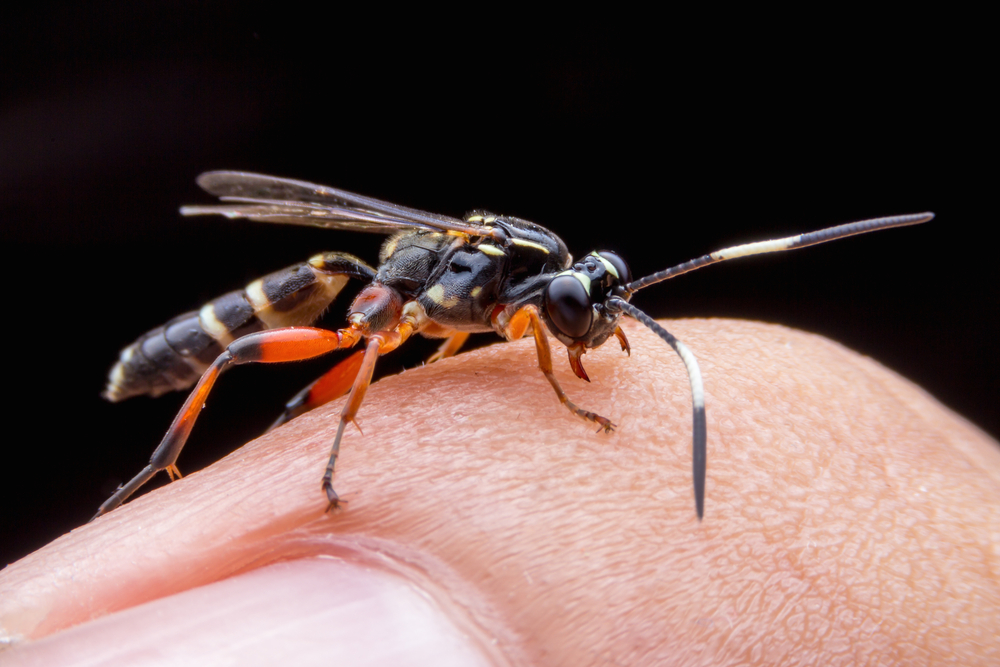Contents:
- Medical Video: Do Carrots Really Give You Better Eyesight?
- What are the foods for healthy eyes besides carrots?
- 1. Green vegetables
- 2. Eggs
- 3. Citrus and berries
- 4. Almonds
- 5. Fatty fish
- The function of lutein and zeaxanthin
- All you need to do to maintain eye health
- Quit smoking
- Use sunglasses
- Limit time at the computer
- If your eyes are dry, blink frequently
Medical Video: Do Carrots Really Give You Better Eyesight?
Carrots contain beta carotene, a type of vitamin A that helps the retina and other functions of the eye. Beta carotene is also what makes the color of this vegetable orange. Because of its function for eye health, carrots are an important food for children and adults. You can serve it as soup or mashed like porridge to arouse your child's appetite, because children sometimes find it hard to like carrots. Even not only children, adults are reluctant to consume it without other foods.
Are good foods for eye health only carrots? Not only from beta carotene, we can actually get intake for eye health, but there are several other vitamins and minerals needed. You can also find it in foods other than carrots.
What are the foods for healthy eyes besides carrots?
Here are recommended foods:
1. Green vegetables
Green vegetables contain lutein and zeaxanthin. Both are antioxidants, and according to research, these substances can reduce the risk of macular degeneration and cataract formation. Lutein can reduce light-induced oxidative damage that causes macular degeneration, while also reducing the risk of retinitis pigmentosa. Lutein and zeaxanthin can be absorbed by the lens and retina, they will absorb the damage that comes from the captured light.
The macula is a small place in the retina where vision becomes the sharpest. While macular degeneration is an eye disease that can cause vision loss because of the presence of blood vessels growing under the retina.
2. Eggs
Egg yolks are rich in lutein and zeaxanthin, with added zinc. Lutein and zeaxanthin are carotenoid types. According to Paul Dougherty, MD, medical director of Dougherty Laser Vision in Los Angeles, quoted by Health.com, this is good for reducing the risk of your macular degeneration.
3. Citrus and berries
Oranges, lemons, lime, and grapefruit belong to the citrus group, and this fruit is rich in vitamin C. You can also find vitamin C in strawberries. This vitamin is a powerful antioxidant, which forms and manages connective tissue, one of which is collagen in the cornea of the eye. Its function is the same to reduce the risk of cataracts and macular degeneration.
4. Almonds
The content of vitamin E is found in almonds. Research shows that vitamin E can protect eye cells from damage. Free radicals can cause interference with healthy eye tissue. When this happens, the risk of macular degeneration also increases. In addition, this vitamin can slow cataract formation. A recent study cited by AOA.org states that there are clear results of a reduced risk of cataracts in participants who consumed high vitamin E intake.
5. Fatty fish
Tuna, salmon, mackerel and salted fish contain high fatty acids. Fatty acids can be found in the retina. Lack of fatty acid levels can trigger dry eye syndrome according to Jimmy Lee, MD, director of refractive surgery at Montefiore Medical Center, New York City, quoted by Health.com.
The function of lutein and zeaxanthin
In plants, lutein and zeaxanthin to absorb excessive light energy so that damage to plants due to exposure to sunlight can also be prevented. These two substances can be found in yellow and red vegetables, but they are also found in green vegetables. The following is evidence of lutein and zeaxanthin can prevent macular degeneration:
- Research published on Nutrition & Metabolism found that supplements containing meso-zeaxanthin, lutein and zeaxanthin effectively improve optical acuity and macular pigment. Macular pigments are important because they can provide protection from the formation of macular degeneration.
- The study, published in the American Journal of Epidemiology, Ophthalmology and Archives of Ophthalmology, shows that high levels of lutein and zeaxanthin found in the diet can reduce the incidence of macular degeneration
In addition to the above foods, you can find both of these substances at:
- Cabbage 23.8 mg
- Spinach 20.4 mg
- 2.2 mg of corn
- Broccoli 1.6 mg
- Radish 12.2 mg
All you need to do to maintain eye health
Not only food, you need to do the following so that your eyes stay healthy:
Quit smoking
Smoking can increase the risk of cataracts, optic nerve damage, and macular degeneration. Smokers can also get uveitis (swelling in the middle part of the eye)
Use sunglasses
Sunglasses can protect your eyes from direct UV light. Too much exposure to UV can increase the risk of cataracts. Choose glasses that can block UVA and UVB 99% or even 100% if possible. If you use contact lenses, you can choose one that offers UV protection.
Limit time at the computer
You should not be too long when looking at the computer screen. Looking at a computer can cause blurred vision, difficulty focusing at a certain distance, dry eyes, and headaches. There are several ways you can anticipate looking at a computer screen:
- Make sure your glasses or contact lenses are updated and are eligible for computer users
- Position the monitor with your eyes
- It is better to avoid seeing a computer glare from windows and lights.
If your eyes are dry, blink frequently
Every 20 minutes, rest your eyes by looking at a distance of 20 feet for 20 seconds. Every two hours you have to take a break and get up for 15 minutes
READ ALSO:
- 7 Characteristics of the Eye of the Shoulder that Must Be Cautioned
- 8 Eye Disorders That Can Be Symptoms of Serious Disease
- 6 Quick Ways to Get Rid of Eyes Swollen After Crying












